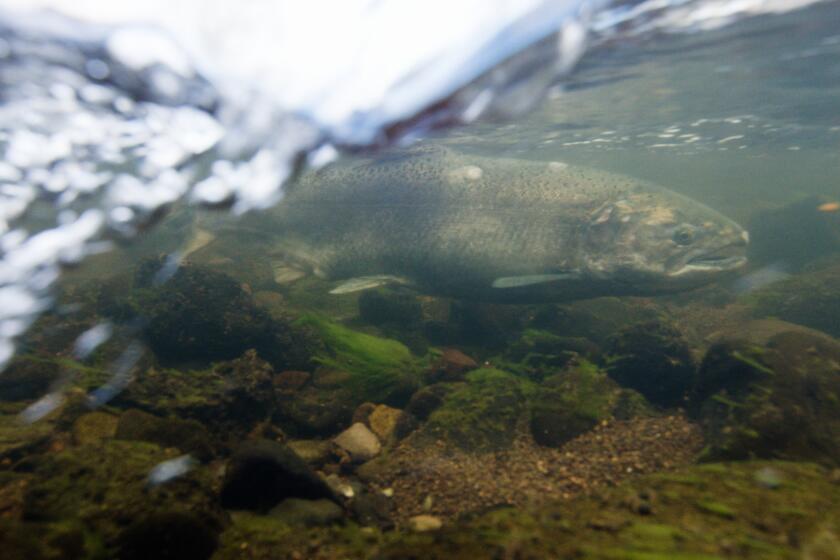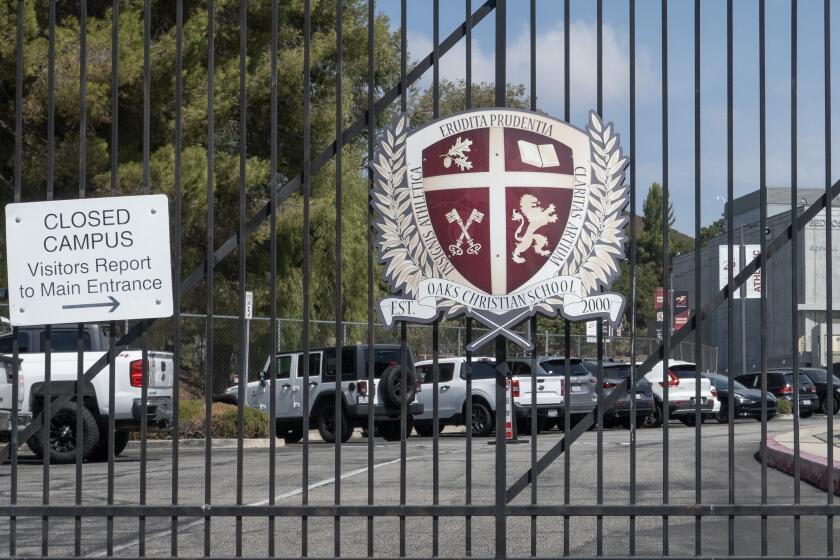Corps of Engineers Expected to Deny Permit : Roadblock to Chula Vista Plans for Bayfront
Federal officials are expected today to deny Chula Vista permission to build a road across Sweetwater Marsh--a road considered central to the city’s long-delayed plans to develop one of the last undeveloped stretches of waterfront on San Diego Bay.
A source close to the case confirmed Tuesday that the U.S. Army Corps of Engineers intends to deny the city’s application for a permit to build a road across the wetland to Gunpowder Point, where the city hopes to build a 400-room hotel, a nature center and a park.
Such a denial is unusual in two ways. It is based on the belief that the road would jeopardize the survival of not one but three endangered species. And the Corps of Engineers’ regional office denies only 1% of the estimated 300 applications it receives each year.
“By denying this road, they’re denying access to the property, so they are indirectly condemning the land,” Paul Desrochers, community development director for the city, said Tuesday when told of the news. “I’m saying they’re putting severe restrictions on the development of that property. Without a 20-foot road, you can’t do anything out there.”
The hotel, which could be as high as 12 stories, is part of the city’s bayfront plan--$500 million worth of light industrial, commercial and residential development on 500 acres bounded by National City, G Street, Bay Boulevard and San Diego Bay.
The plan won the approval of the California Coastal Commission in 1984--10 years after the city first proposed it. But the Sierra Club is now suing to overturn that decision. Last month, the federal grand jury in San Diego subpoenaed six years’ worth of city records about the bayfront as part of an investigation into the possibility of violations of the Endangered Species Act.
The area serves as a home or nesting ground for the light-footed clapper rail and the California least tern, two bird species on the federal endangered species list. It also houses salt marsh bird’s beak, an endangered plant also expected to be cited in the Corps of Engineers’ decision.
All three species rely on coastal wetlands like the Sweetwater Marsh for their survival. In recent years, they have lost increasing amounts of habitat to waterfront development--which must be approved by the Corps of Engineers under the federal Clean Water Act.
On Tuesday, a source said that the Corps of Engineers today will deny Chula Vista’s application for a permit to build a 20-foot-wide concrete road from an extension of E Street to be called Marina Parkway--the first of 11 permits Chula Vista must seek before it could complete its plan. The decision appears to be based in part on the U.S. Fish and Wildlife Service’s conclusion that the proposed road could “reduce the survivability” of the three species.
Nancy Kauffman, a supervisor with the Fish and Wildlife Service in Laguna Niguel, said that the clapper rail is “probably the most endangered species in Southern California,” in a state that houses 20% of the species on the federal list.
She said the salt marsh bird’s beak population in Chula Vista lies between a population in Newport Beach and one in Mexico. As a species becomes fragmented, it can no longer support other species, she said, explaining the importance of seemingly insignificant populations.
To illustrate their interdependence, Kauffman quoted what she said is a common maxim: “When you’re tinkering with your car, you don’t throw out the nuts and bolts because they’re small, or you’ll never get it back together.”
Kauffman said her agency does not object to the city building a 15-foot-wide crushed gravel road to the proposed nature center on Gunpowder Point. But the 20-foot-wide, concrete road to a 400-room hotel would present a much more significant level of use, she said.
Mayor Greg Cox of Chula Vista confirmed Tuesday that his staff had asked the Corps of Engineers not to release the Fish and Wildlife Service’s biological opinion condemning the plan until the City Council could consider modifications.
He said the council agreed to remove a proposed pedestrian walkway along the road and create routes through which clapper rails could pass under the road. But he said the proposals were not enough to persuade the Fish and Wildlife Service to change its mind.
“Our plan at this point would be to move ahead with the nature center,” Cox said, noting that the hotel could not have been built without two more permits from the Corps of Engineers. “I guess we’re getting used to being beat up by U.S. Fish and Wildlife and the corps.”
The city now has the option of recrafting the proposal for the road and resubmitting its application to the Corps of Engineers. However, Desrochers said the city also might challenge the Corps of Engineers’ decision if it rules against the plan.
“I think one of our options would definitely be to challenge their decision,” said Desrochers. “ . . . We feel we have taken extremely protective measures to insure that the species will be enhanced rather than jeopardized.”
More to Read
Sign up for Essential California
The most important California stories and recommendations in your inbox every morning.
You may occasionally receive promotional content from the Los Angeles Times.










